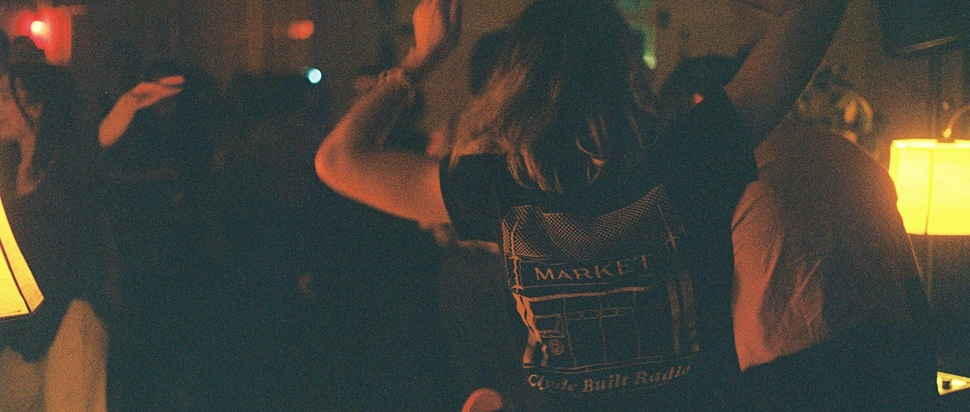High Sobriety: Glasgow's alcohol-free party, Good Clean Fun
As a sober-curious generation of clubgoers are opting to snub booze year-round, we catch up with Glasgow's monthly alcohol-free party Good Clean Fun, as well as some of its regulars
New Year wellness trends are nothing new, but the consumption habits of contemporary clubbers are. Dry January has long provided a month to be mindful of your drinking habits, and now, more than ever, a sober-curious generation of clubgoers are opting to snub booze year-round on the dancefloor. Subsequently, growing with the demand is Good Clean Fun – a monthly alcohol-free party quenching the thirst for an alternative space to enjoy a modern clubbing experience without the typical excesses.
“The party’s not a consolation prize for being unable to drink... we’re trying to build a culture around sobriety,” says Amy Rodgers, co-founder and resident DJ of the club night that began in 2021. “More people are rethinking their relationship to alcohol. Dry January is a great way for people to dip their toes into abstinence... it can be hard to imagine what a party can look like beyond drink and drugs if you've never tried it before.”
Good Clean Fun provides punters with a safe space, upstairs at Garnethill Multicultural Centre, to kick back over a kombucha and enjoy a range of stews, curries, and salads crafted by resident chef Reed Hexamer, before cutting loose to the sounds of local DJs. Widely adopted as Scotland’s social lubricant, alcohol gives many the confidence to dance, let loose, and become a more sociable version of themselves on a weekly basis. Understandably, when removed from the equation entirely, some might wonder what an average Saturday evening could look like. “Floor cushions, bean bags, and carpets,” explains Rodgers, painting a scene more akin to a laidback house party than your standard nightclub. “The same way you’d typically go for pre-drinks with pals to relax you, we run a meditation hour that offers people an opportunity to get out of their head and connect to their body.
"It's quite a big thing for people to go on a night out sober,” admits Rodgers. “I've gone out clubbing a lot since I was 18 and had to stop drinking and taking drugs... the first couple years were really hard. I felt disconnected from everyone else on the dancefloor, it was like I was the only sober person in the world.” Seeking a space that didn’t pander to pints and party drugs, Rodgers swapped out strobes for festoon lights in an attempt to build a bridge between Glasgow’s recovery community and underground dance music scene. “Last New Year's Eve was amazing,” they reminisce. “The bells were going; I looked up from the decks and saw so many of my pals that I’d met through recovery dancing together – this is exactly what this space is for.”
One of those pals is Robbie Houston, aka Boab, an abstinent Glaswegian artist and recent performer at Good Clean Fun’s annual NYE French Street event following the release of his debut album. “Unless I was heavily intoxicated, I’d never have dreamt of dancing in public once upon a time,” recalls Houston. “When I decided to put drugs behind me, I sort of resigned to the fact that I’d never be into clubbing or the like again. I made peace with it really. I met Amy not long into my recovery and we gradually built a beautiful friendship based around honesty, music and creativity. The night has helped me greatly in widening my social circle and giving me a place to release.”
“We know that community building and connecting with friends are key for health and wellbeing,” affirms Beth Meadows, a Glasgow Caledonian University PhD candidate and Good Clean Fun dancer. “Alcohol-free nightlife offers people the opportunity to access important social pleasures associated with traditional nightlife without the risks posed by alcohol. Nightlife has long been an essential safe space for marginalised communities. We all deserve the right to party."
But for Meadows, clubbing spaces informed by decades of dance music culture, intertwined with substance use, come with unavoidable short and long-term welfare risks. “Sure, there has been a decrease in alcohol consumption, but alcohol-related deaths are still high... There are also the impacts on illness, injury, crime, family and friends, mental health... there are so many deeply entrenched connections to the issues of alcohol that we're still very much experiencing as a society.”
"There’s stigma around addiction,” acknowledges Rodgers. “A lot of the coverage you see is statistics surrounding deaths in Scotland, and obviously that is important, but there’s lots of good stuff happening in the recovery community – we want to start a conversation around this.” Having secured funding from The National Lottery Community Fund and Scottish Families Affected by Alcohol and Drugs, this month Good Clean Fun will host DJ and production workshops at Civic House, followed by a series of panel talks throughout the year that Rodgers hopes will lay the foundations for a strong separate social circuit that doesn’t reference nor rely on alcohol for fun.
Good Clean Fun, Garnethill Muticultural Centre, Glasgow, 25 Jan, tickets via RA
Find out more about Good Clean Fun at gcfglasgow.com and follow them on Instagram @_goodcleanfun
